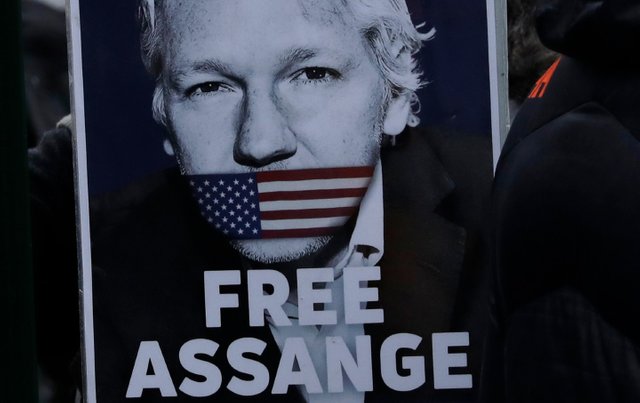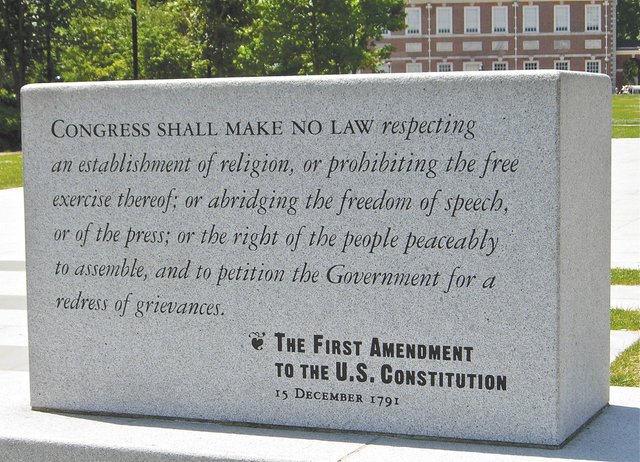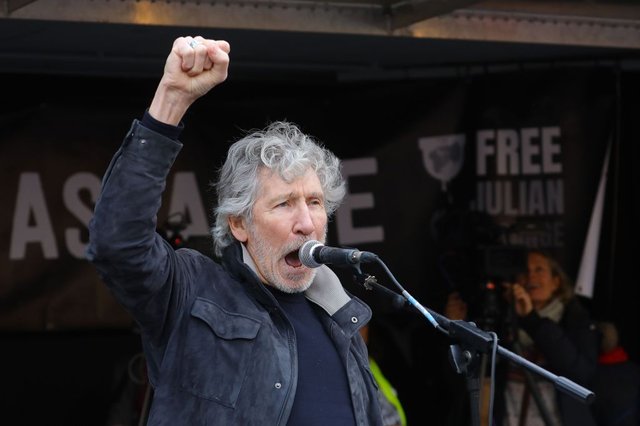A comprehensive overview of the Julian Assange case: international press awakens, hopefully not too late?


More and more journalists and media spokesmen in Great Britain, Australia, Germany, Spain, France and other countries are expressing their indignation at the imprisonment of Julian Assange. They fear that his extradition to the US and sentencing to life imprisonment is a dangerous precedent for press freedom around the world.
His case gained momentum following the report by Nils Melzer, the United Nations Special Rapporteur on Torture and other Cruel, Inhuman or Degrading Treatment or Punishment, in December 2019. (See below his very interesting testimony on Democracy Now!)
In 20 years of work with victims of war, violence and political persecution, I have never seen a group of democratic states ganging up to deliberately isolate, demonize and abuse a single individual for such a long time. - Nils Melzer
The US unilaterally decided it has the right to convict a non-US journalist who was active outside the US on the basis of an American law on leaking classified information. If he is extradited and convicted, it would set a historical precedent. Any journalist, anywhere in the world, who from then on reveals American state secrets, runs the risk of being extradited to the US. It is the first time that the US uses the Espionage Act of 1917 to prosecute a journalist.
The lawsuit originally started in a large courtroom in central London, but the judge decided to move the case to the small room of a local court near Belmarsh Prison, where Assange is being held. There is only room for 25 hearers. Nearly half of those seats are taken by American lawyers who guide the British prosecuting attorney.
Chelsea Manning, The 'War on Terror' and Wikileaks
The US wants to prosecute Assange for obtaining and publishing secret information in 2010 and 2011, which revealed the truth of the 'War on Terror' by the government of President George W. Bush.
In addition, WikiLeaks also published tens of thousands of diplomatic communiqués from US embassies and reports and communiqués about the US base Guantánamo in Cuba, about the prison where persons suspected of terrorism are being held and mistreated without any form of trial.
American justice began its investigation against Julian Assange and WikiLeaks in early 2010. A few years later, the Obama administration decided not to prosecute WikiLeaks, because this would create a precedent for other media organizations.
In January 2017, just before the end of the presidential mandate of Obama, Chelsea Manning was released from jail. Manning, secret information analyst for the US Army in Iraq, is considered to be the source of the material that WikiLeaks obtained.
Trump reverses Obama’s decision
In August 2017, the Trump government attempted to put pressure on Assange to make statements that would politically benefit the president. Assange refused, after which the government submitted its request for extradition to the British government.
In turn, Chelsea Manning was then pressured to make new statements to the detriment of Assange. Because she refuses, she was ordered back to jail for contempt of court. The reason why Manning had refused to answer further questions about Wikileaks is that she then risks being sued again for a new trial.
The goal here is really to relitigate the court-martial. They didn't like the outcome - I got out. – Chelsea Manning

Organizations in defence of freedom of the press emphasize that the indictment by means of the Espionage Act, on which the request for extradition is based, criminalizes the normal functioning of the media. This prosecution allows other journalists and media (The New York Times, The Guardian, Der Spiegel, El Pais, Le Monde, and others) to be prosecuted for their publication of the WikiLeaks documents, for which Assange is now being prosecuted.
Worse than the death penalty
The US arbitrarily applies a legal contradiction to Assange. As a non-American citizen, he is prosecuted on the basis of an American law for acts that were not committed on American soil. Not disturbed by any consistency, the US government also states that he is not entitled to constitutional protection because he isn't a US citizen.
The First Amendment states that Congress shall make no law respecting an establishment of religion, or prohibiting the free exercise thereof; or abridging the freedom of speech, or of the press; or the right of the people peaceably to assemble, and to petition the Government for a redress of grievances. Therefore, Assange can't invoke it.

The US filed 17 charges under the Espionage Act and one under the Computer Fraud and Abuse Act of 1986. In total, Assange risks 175 years in prison.
During his trial in the US, Assange will be detained in even stricter circumstances than in Britain. He will stay 24/7 in an isolation cell without the right to contact his family. He can only speak to his lawyers who risk criminal prosecution if they go public with any message from Assange. To me, this sounds even worse than the death penalty.
'Hundreds put at risk'
The US also claims that the publication of state secrets has put American citizens at risk. The main purpose of this argument, according to Assange's lawyers, is to divert attention from the thousands of victims of summary executions, torture, war crimes and other human rights violations by the US military. None of the people involved in the crimes revealed by WikiLeaks have ever been prosecuted by American justice.
During the Chelsea Manning trial, the prosecutor stated that it was not possible to find one person who had been suffered damage or had been killed by the revelations. Ten years later, the US has not been able to provide any new evidence that that would be the case.
At the extradition hearing, lawyer James Lewis, on behalf of the US government, nonetheless again said that Assange, with the dissemination of specific classified documents, put dissidents in Afghanistan and Iraq at "risk of serious harm, torture or even death". Although no concrete evidence is provided, the public broadcaster BBC published the claim as a statement entitled Julian Assange 'put lives at risk' by sharing unredacted files.
Lawyer Lewis stated on the first day of trial:
The US is aware of sources, whose redacted names and other identifying information was contained in classified documents published by Wikileaks, who subsequently disappeared, although the US can't prove at this point that their disappearance was the result of being outed by Wikileaks.
Assange's lawyers again pointed out - as Assange has always stated - that it's completely misleading to suggest it was Julian Assange and Wikileaks to blame for the disclosure of unredacted names. The Guardian journalist Luke Hardingeven went so far as to release the password for access to the not yet edited documents.
Wikileaks only published the unredacted material after they had been published by others who have never faced prosecution.
The public rhetoric of US government spokespersons is in complete contrast to the US intelligence agencies' own reports. An official said:
We were told that the impact of WikiLeaks revelations was embarrassing but not damaging.
Embarrassing, not damaging…
Is a fair trial possible in the US?
The judiciary that will judge this case in the US is a 'grand jury', a sort of State Security Court. The headquarters of this court are in the state of Virginia, west of the capital Washington DC, where the CIA headquarters and other security services are also located. The civilian jury in the Eastern District Court will consist almost entirely of local employees of these agencies.
John Kiriakou is a former CIA officer. He was prosecuted as a whistleblower because he revealed evidence of torture by the CIA. He was sentenced to 30 months in prison by Eastern District of Virginia Judge Leonie Brinkema. According to him, Assange would have no chance of a fair trial in front of a federal judge who "reserves every national security case for herself."
He’s been charged in the Eastern District of Virginia. His judge was also my judge and ex-Snowden’s judge and [CIA whistleblower] Jeffry Sterling’s judge who reserves every national security case for herself.
She is a hanging judge. She will not give him a fair trial. It’s impossible for Julian to receive a fair trial in the Eastern District of Virginia.
The US also claims that WikiLeaks would be an anti-American organization that only reveals secrets about the US. However, WikiLeaks has already revealed secrets about Kenya, Peru, Syria, Saudi Arabia, Russia, Norway and to a lesser extent about many other countries.

Singer Roger Waters speaking at a 'Don't Extradite Julian Assange' protest rally in Parliament Square in London. - Source
Spanish connection
In Spain, there is a lawsuit against the security company that secured the embassy of Ecuador in London, where Assange was staying in asylum. That company has forwarded all audio and video recordings of all contacts of Assange in the embassy to several agencies in the US. This also includes all conversations that Assange had with his lawyers. This makes a fair trial in the US impossible and is an additional reason to challenge the extradition (see The US trail of the man whose security firm spied on Julian Assange).
A number of former employees of the company went to the Spanish court with their information. The company installed hidden microphones and cameras, opened the mobile phones of all visiting people, journalists and doctors to copy the serial numbers and IMEI codes and broke into the offices of Assange's lawyers.
The trial in Spain is still on, but Assange's lawyers see it as an argument that the rights of the defense have been violated. Months before the trial, the American authorities knew all the arguments and reasoning that the lawyers would use. They were able to prepare extensively for this. The first hearing fully demonstrates that.
And there is more:
Lawyers for Assange intend to call as a witness a former employee of a Spanish security company who says surveillance was carried out for the US on Assange while he was at Ecuador’s London embassy and that conversations had turned to potentially kidnapping or poisoning him. From The Guardian: Trump administration targeting ‘enemy of America’ Julian Assange, court told).
Journalist or not?
Julian Assange has been a recognized member of the Journalist Union of Australia for more than ten years - long before the controversy started - and has received the Walkley Award for his journalism work, which is the highest press prize in Australia.
Therefore, because what Julian Assange does is normal journalism, this lawsuit concerns all journalists anywhere in the world. Amnesty International, after years of hesitation in recognizing Assange as a political prisoner - has now also joined the demand not to extradite Assange to the US.

The list of publications for which Assange is being prosecuted:
- Collateral Murder on which you can see how American soldiers gunning down a group of civilians and then also attack an ambulance.
- https://collateralmurder.wikileaks.org/ and
- https://collateralmurder.wikileaks.org/en/resources.html
- Afghan War Diaries
- [Iraq War Logs](https://wardiaries.wikileaks.org/
- Cablegate
- Guantanamo Files/GITMO Files
Full report of the demonstration on February 24 in London including speeches from Assange's father John Shipton, Assange's Swedish lawyer Kristin Hrafnsson, Roger Waters, Tariq Ali and Yanis Varoufakis.
This post also appeared on my U ° Community blog.